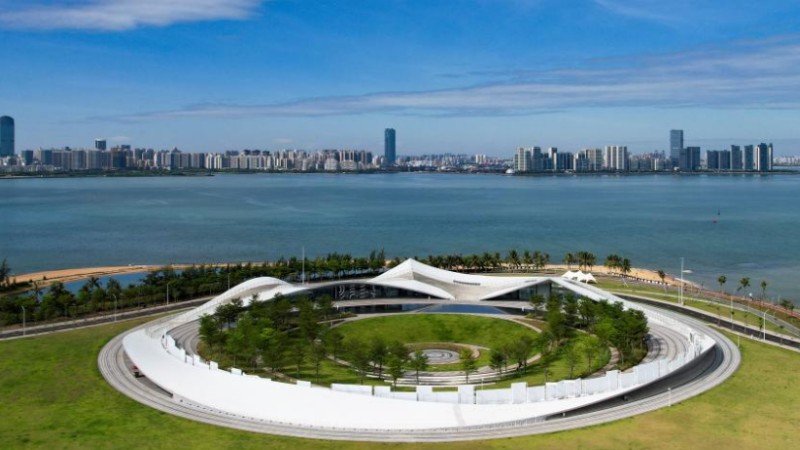Chinese mainland's investigation into Taiwan's trade restrictions justified, legitimate: experts
BEIJING, Aug. 18 (Xinhua) -- The Chinese mainland's investigation into the Taiwan region's trade restrictions is justified and legitimate, and will help promote the sound development of cross-Strait economic and trade ties, experts have said.
The Ministry of Commerce (MOC) said Thursday that preliminary results from a trade barrier investigation showed the Taiwan region's restrictions on products from the Chinese mainland are suspected of violating World Trade Organization (WTO) rules, such as those dictating non-discrimination and the general elimination of quantitative restrictions.
The openness of trade has long been uneven between the mainland and the Taiwan region, said Sheng Jiuyuan, executive director of the center for Taiwan studies at Shanghai Jiao Tong University.
Sheng said Taiwan authorities have unilaterally restricted the imports of more than 2,000 items of products from the mainland, causing damage to the interests of related industries and enterprises on the mainland.
The MOC launched the investigation on April 12 after a trade barrier investigation request was submitted by three mainland import and export trade chambers in March.
"This investigation is a normal market behavior, and it is a common practice in the world to complain about or investigate unfair market competition," Sheng said. "The investigation is open, fair and in line with laws and regulations, and will provide a model for the sound development of cross-Strait economic and trade relations."
The mainland has urged the Taiwan region to effectively fulfill its WTO commitments, but it has failed to make due changes.
The range of prohibited imports from the mainland has been expanding in recent years, and products involved in the investigation has grown from 2,455 items when the request was filed to 2,509 items at present.
Yin Cunyi, professor of the institute of Taiwan studies of Tsinghua University, said that the Democratic Progressive Party authorities have long taken a negative attitude towards cross-Strait economic and trade relations, and have used every means to hinder the normal exchanges, which seriously violates economic laws and ignores the fundamental interests of the Taiwan people.
"They are actually using the interests and welfare of the Taiwan people to pay for their own political interests," Yin said.
Based on the outcome of the investigation, the ministry will explore taking corresponding measures in line with related regulations, MOC spokesperson Shu Jueting said Thursday. She was responding to a question on whether the mainland will fully or partially suspend certain preferential tariff policies on imports from Taiwan under the Economic Cooperation Framework Agreement (ECFA), a comprehensive cross-Strait economic pact intended to lower commercial barriers.
Experts have called on the Taiwan side to revoke trade restrictions on products from the mainland as soon as possible, so as to put cross-Strait economic and trade development back on the normal and regulated track.
Tang Yonghong, professor at the Graduate Institute for Taiwan Studies of Xiamen University, said that Taiwan authorities' moves of setting various barriers in cross-Strait economic and trade exchanges have impeded the integration and utilization of comparative advantages of the two sides of the Strait.
The mainland's investigation into the Taiwan region's trade restrictions will remove obstructions and help the industries and enterprises of the two sides leverage complementary advantages to promote common economic development across the Strait, Tang added.
Yin said it should be noted that the mainland's stance and attitude of promoting healthy development of cross-Strait economic and trade ties will not change or waver, as evidenced by the constant roll-out of policies benefiting the Taiwan region and resolute countermeasures against actions damaging the peaceful development of cross-Strait relations and normal economic and trade exchanges.
Photos
Related Stories
- Lai the liar, out-and-out troublemaker who works for "Taiwan independence"
- China-South Asia Expo attracts participants worldwide
- Mainland's Taiwan affairs office supports study on suspension of tariff preferences for Taiwan products
- PLA launches joint patrols and military exercises around Taiwan
- Mainland official strongly condemns provocative move by Taiwan's DPP to further collude with U.S.
- China, EU remain major trading partners despite decoupling, de-risking talks
Copyright © 2023 People's Daily Online. All Rights Reserved.









